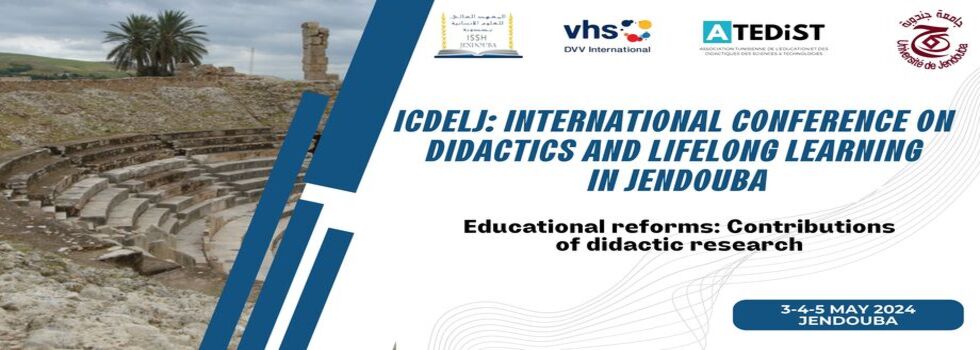
|
News The registration form is online Context and Objectives of the conference The launch of a national consultation on the reform of the education system (" Consultation nationale sur la Réforme du Système Educatif") was the important event of the month of September 2023 in Tunisia. As the reform of the educational system is a strategic choice of Tunisian education policy at different levels (pre-primary education, primary/elementary education, secondary education, vocational training and higher education), this consultation will contribute to generate a global vision for education and to respond to changing requirements within the local socio-economic and socio-cultural context, as well as changes in scientific education worldwide. However, the question of reforming the education system is not just a political choice, but rather the manifestation of collective intelligence, i.e., the share of meaning (De Ketele, 2020). The fulcrum is therefore the collaboration between the various actors in the education sector and society. In the same context, Lebeaume & al (2011) postulate that didactic research may provide the possibilities and conditions for implementing educational reforms. The two co-authors highlight the importance of a number of didactic research studies that "have helped to manage inventory activities and characterize teaching-learning situations" (p. 8). Reforming or improving education systems therefore requires as much research on education (Meuret, 2020) as research for education (Gomez et al., 2020). The aim of this conference is therefore to highlight the contribution of didactic research to educational reform, based on three orientations or perspectives:
2) The second orientation (an explanatory-comprehensive perspective) approaches educational choices as an object of research for didacticians. In particular, it looks at the content of these reforms, curricular choices, appropriate professional practices, etc. 3) The third orientation (a forward-looking perspective) is designed to identify the main lines of thought in the reform of education systems. Didactic research can guide reforms in favor of certain values: guaranteeing lifelong education, reducing inequalities... Conference axes This international axes is aimed at teacher-researchers, PhD students and education professionals, and will feature session papers and posters. Paper proposals must fall within one of the following axis: Axis I: Reforming the education system: insights from didactic research Bibliography De Ketele, J. (2020). Réformer l’éducation. Revue Internationale D’éducation Sèvres, 83, 13‑22. https://doi.org/10.4000/ries.927 Gomez, L. M., Bryk, A. S., & Bohannon, A. X. (2020). La fiabilité :une voie vers l’équité ? Revue Internationale D’éducation Sèvres, 83, 195‑204. https://doi.org/10.4000/ries.9447 Lebeaume, J., Hasni, A. & Harlé, I.(2011). Recherches et expertises pour l'enseignement scientifique: Technologie- sciences- mathématiques. De Boeck Supérieur. Meuret, D. (2020). Légitimation et légitimité des réformes. Revue Internationale D’éducation Sèvres, 83, 113‑121. https://doi.org/10.4000/ries.9372 Raulin, D. (2006). De nouveaux rapports entre science et politique : le cas des programmes scolaires. Revue Française de Pédagogie, 154, 61‑72. https://doi.org/10.4000/rfp.127
Organization This conference will take place from May 3rd to 5th, 2024 at the Institut Supérieur des Sciences Humaines in Jendouba (Tunisia). The aim is to enable meetings between researchers, experts and practitioners in the field of education. Communications will be presented in Arabic, French or English. Abstracts will be submitted to the scientific committee for review. Timetable and submission procedures
Abstract Submission Deadline: 10 March 2024 at 23h59 20 March 2024 at 23h59 Notice to authors: 31 March 2024 04 April 2024 Detailed programme available : 15 April 2024 Deadline for submission of proceedings: October 30, 2024 at 11:59 p.m. Proposals for papers should be sent to the scientific committee via the symposium website: https://didareforme.sciencesconf.org/
The expected content of the abstract is as follows: problem, methodology and principal results. References must comply with A.P.A. standards (7th edition). Contact: atedistconf@gmail.com |


